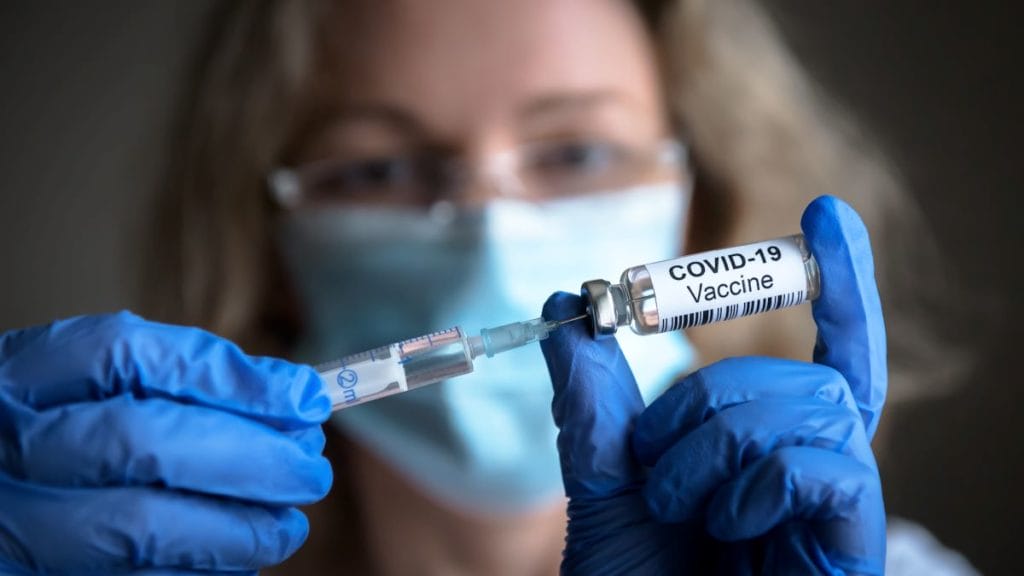
When Jill Harman went to get her COVID-19 vaccine at an Ingles Market pharmacy in rural Georgia, she mentioned to pharmacy staff that she carried an epinephrine auto-injector.
She was surprised when pharmacy staff then declined to vaccinate her. Harman, 78, says the Ingles staff told her it was “company policy that they could not give me the vaccine because I carried an EpiPen.”
Harman was diagnosed eight years ago with alpha-gal allergy (sometimes called red meat allergy) after a tick bite. She’d simply wanted the pharmacy staff to know she had her auto-injector, just in case she reacted. “So they wouldn’t have to go rummaging around for one,” Harman says.

As with other vaccines, the mRNA COVID-19 vaccines made by Moderna and Pfixer-BioNTech can cause rare instances of anaphylaxis. Many of those who have had allergic reactions to the novel vaccines have reported a history of anaphylaxis or allergies to foods or drugs.
In a Tweet, an Ingles Markets representative stated: “If someone has had a severe allergic reaction (anaphylaxis) the recommendation is for them to be vaccinated at a doctor’s office or hospital where they can rapidly receive a high level of medical support.”
Asked about Harman, Ingles Markets CFO Ron Freeman said in a statement to Allergic Living: “Our response to this customer was in accordance with CDC guidelines and CDC clinical considerations.”
Not so, experts say. The Ingles policy runs counter to recommendations from the Centers for Disease Control and Prevention (CDC), which say that COVID-19 vaccines should be given to people with a history of allergies to food, non-injectable medications, pets, venom, latex, and environmental allergens.
Only those who are allergic to a component of the vaccine, such as polyethelene glycol or polyethelene sorbate, or who reacted to the first dose of the mRNA vaccines, are warned to avoid the shots.
The CDC’s only special precaution for those with a history of severe allergic reactions is a longer monitoring period after the shot – 30 minutes instead of the standard 15. “For both vaccines currently available, the only contraindication is a previous reaction to the vaccine itself, or to a component of the vaccine,” says Michael Ganio, senior director of Pharmacy Practice and Quality for the American Society of Health-System Pharmacists (ASHP).
Nor is there a CDC recommendation that people with severe allergies get vaccinated at a hospital or doctor’s office. According to the most recent data from the CDC, anaphylaxis to the vaccines remains rare – about 2.1 cases for everyone 1 million people receiving the Moderna vaccine and 6.2 cases per 1 million of the Pfizer vaccines.
Pharmacies‘ Vaccination Policies
The Ingles Markets policy raises the question of whether those with allergies could be turned away if they seek a COVID-19 vaccine at their local pharmacy.
Pharmacy vaccine waivers and consent forms that are signed ahead of receiving a shot vary in wording. Many ask people whether they have allergies to medications, vaccines or foods. For the COVID vaccines, waivers may also ask if people have ever reacted to vaccine components, an injectable medication, or the first dose of a COVID-19 vaccine.
Unusually, the Ingles waiver also asks people if they carry an epinephrine auto-injector. So far, Ingles, which has 200 locations in the southeast U.S., is the only pharmacy chain that Allergic Living is aware of that will not administer the vaccine to people who answer “yes.”
CVS Pharmacy, the nation’s largest drug store chain, has no policy against vaccinating those who carry epinephrine. “Our immunizers are trained in the safe administration of the COVID-19 vaccines authorized for use by the FDA, including identifying and treating allergic reactions. The vaccination procedures include a patient screening checklist to assess the risk of reaction,” said Matt Blanchette, manager of retail communications.
Publix Super Markets, a large chain and vaccine provider in the southeast U.S., also has no plans to turn away customers with allergies. “Our pharmacists have a detailed protocol for patients that are experiencing anaphylaxis, which includes calling 911 and administering epinephrine,” said Maria Brous, Publix’s director of communications.
In fact, even the Ingles representative said the chain’s vaccination locations “maintain all necessary supplies and medications for managing anaphylaxis.”
What Precautions Do Pharmacies Take?
The CDC recommends that all vaccine locations have trained staff and supplies to promptly treat anaphylaxis, including epinephrine, antihistamines, a blood pressure cuff, a stethoscope and a pulse timing device.
Patients should feel confident that their local pharmacy will have these supplies on hand, says Theresa Tolle, who in March becomes president-elect of the American Pharmacists Association. Pharmacists who administer vaccines also have to undergo training on recognizing and treating allergic reactions, and are expected to give epinephrine when needed.

“Pharmacists are accustomed to giving immunizations. We do it everyday, and we have a protocol for what to do in an emergency situation,” Tolle says.
Tolle says that people with allergies should not worry that they will be turned away at pharmacies when they disclose their allergy. “I don’t think patients are going to be routinely turned away from pharmacies for carrying an auto-injector,” says Tolle, owner of Bay Street Pharmacy in Sebastian, Florida.
Discuss Allergy Concerns with Your Pharmacist
If people are concerned about the slim chance of an allergic reaction from the vaccine, have a conversation with your pharmacist or other vaccine provider, Ganio advises. Verify that the provider has epinephrine and other supplies on hand, and is comfortable in treating anaphylaxis should it occur. (Allergists have also recommended to Allergic Living that patients with severe allergies check into the emergency equipment available in advance, just to be cautious.)
“There is going to be variation among different sites as to how prepared they are in managing these reactions,” Ganio says. Just as with other vaccines the risk of anaphylactic reaction is low with COVID-19 vaccines. However, he says, “there is more of an unknown,” because the precise risk factors for an anaphylactic reaction have yet to be determined.
For Harman, getting vaccinated was a priority. She had polio as a child before the polio vaccine was widely available, and spent time in an iron lung, a metal chamber that provided breathing support. Decades later, she has respiratory muscle weakness and difficulty walking due to the lingering effects of the disease.
Harman’s quest to get vaccinated quest has a happy ending: As she was trying to explain to Ingles staff that there should be nothing preventing her from being vaccinated, an independent pharmacy in a town 30 miles away called to let her know she could come in two days later.
“I’m so relieved I was able to get it,” she says. “I don’t even have a sore arm and I have no side effects.”
Related Reading:
Severe Allergic Reactions to COVID-19 Vaccines Are Rare: CDC Report
FAQ on: Allergy Concerns and the mRNA COVID-19 Vaccine
Likely More Than One Cause for COVID-19 Vaccine Reactions





